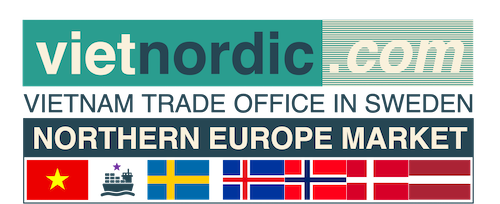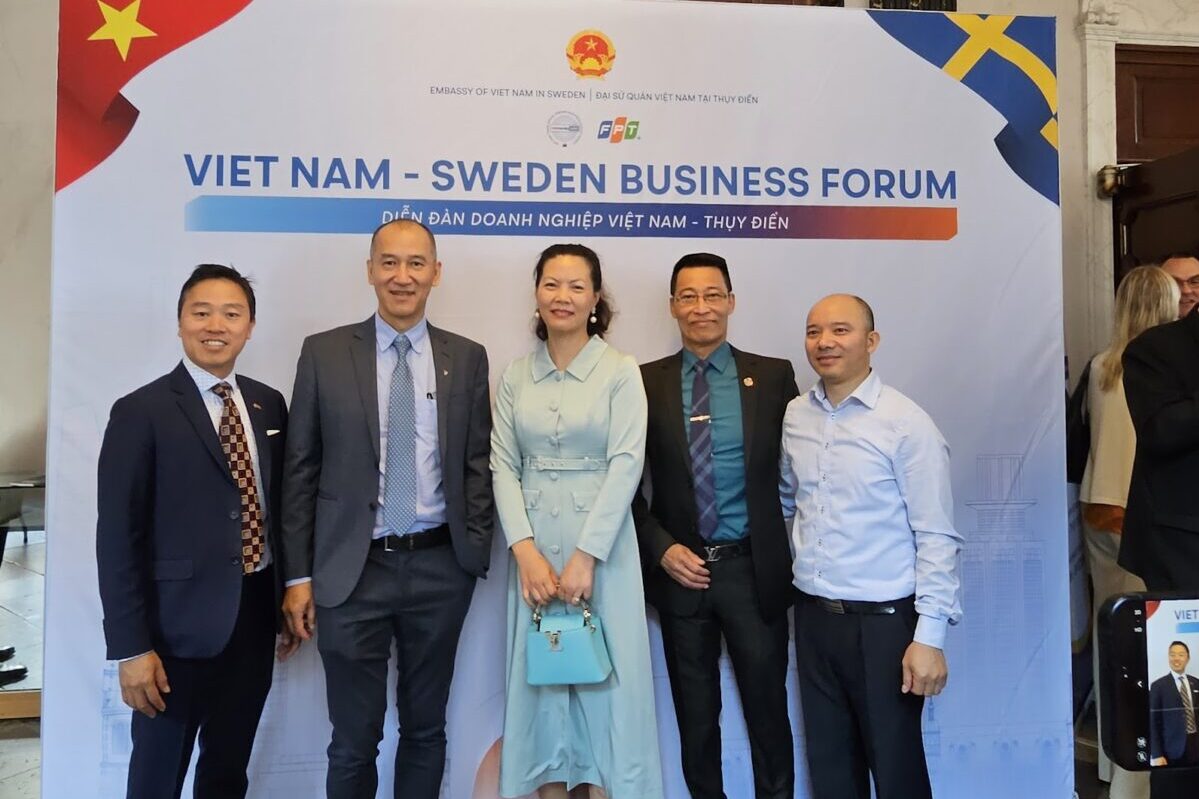The opening of FPT Corporation’s first representative office in Sweden and the signing of five Memorandums of Understanding (MOUs) have created opportunities to enhance Vietnam-Sweden relations.
Ms. Nguyễn Thị Hoàng Thúy, Director General of the Ministry of Industry and Trade and Head of the Vietnam Trade Office in Sweden, who also oversees the Nordic markets, shared insights on this matter with Cong Thuong newspaper.
The Vietnam-Sweden Business Forum was recently held to mark 55 years of diplomatic relations between Vietnam and Sweden. How effective was the forum in promoting Vietnam-Sweden relations, particularly in trade and investment?
The Vietnam-Sweden Business Forum, organized by the Embassy of Vietnam in Sweden, the Trade Office, and FPT Corporation on September 6 with the theme “Digital Transformation, Green Transition, and Innovation,” provided a crucial impetus for promoting trade and investment between the two countries. Through the forum, Vietnamese and Swedish businesses had the opportunity to meet directly, share experiences, and establish strategic partnerships, thus expanding the potential for cooperation in technology, clean energy, and innovation.
Vietnamese businesses have learned a lot from Sweden, a leader in digital transformation and sustainable development, especially in applying technology to production and minimizing environmental impact. These insights will help Vietnamese enterprises enhance their competitiveness in the international market, particularly in Europe. The forum also offered a platform to discuss investment policies, creating favorable conditions for new cooperation projects in high-tech industries, renewable energy, and logistics.
A key highlight of the event was the opening of FPT Corporation’s first representative office in Sweden, affirming its long-term investment commitment in the country, with plans to open a second office in Stockholm later this year. Additionally, the signing of five MOUs during the forum has paved the way for specific cooperation in services and import-export, ensuring the continuous expansion and sustainable development of trade and investment relations between the two nations.
Following the forum, Syre Company flew to Vietnam to prepare for an investment plan in textile recycling, a sector with significant potential given the global focus on sustainable development. Furthermore, MSC, the world’s largest container shipping company, announced the launch of the new SWAN route, which will directly connect Gothenburg and Vung Tau in 2025, creating significant opportunities for trade and logistics between the two countries. These commitments not only deepen cooperation but also open up numerous development opportunities in the near future.
It is known that five MOUs were signed during the forum, with four related to trade and logistics. How will these MOUs contribute to promoting the export of Vietnamese goods to Sweden and the Nordic region?
The MOUs signed at the Vietnam-Sweden Business Forum play a crucial role in boosting the export of Vietnamese goods to Sweden and the Nordic region. The first two MOUs, signed between the Vietnam Trade Office in Sweden, Business Sweden, and ARC Financial Group, focus on bringing Nordic businesses to the annual Vietnam International Sourcing Fair, organized by the Ministry of Industry and Trade. This will enable Vietnamese businesses to directly enter foreign distribution channels, reducing dependence on intermediaries and increasing competitiveness.
The other two MOUs, signed between Gothenburg Port, the Haiphong Department of Industry and Trade, and Saigon Newport Corporation, focus on seaport and logistics cooperation. This is a key factor in elevating import-export turnover between Vietnam and Sweden, which currently faces challenges due to the lack of direct flights and seaport connections. Currently, goods from Vietnam to Sweden and the broader Nordic region must pass through intermediary countries, increasing transportation costs and time.
The launch of MSC’s SWAN route, which will directly connect Gothenburg and Vung Tau in 2025, as mentioned earlier, along with the MOUs signed at the forum, results from the tireless efforts of the Vietnam Embassy and Trade Office in Sweden. These agreements not only facilitate the export of goods but also expand the scope of cooperation in logistics and infrastructure, thereby strengthening trade and investment relations between the two countries.
What specific activities will be undertaken in the near future to implement the MOUs?
In the near future, the MOUs will be implemented through various activities aimed at strengthening cooperation and promoting exports between Vietnam and Sweden.
Specifically, the Vietnam Trade Office in Sweden will work with Business Sweden and ARC Financial Group, two partners of the recently signed MOUs, to organize a delegation of Nordic businesses to participate in the Vietnam International Sourcing Fair in 2025, from September 4-6. This will provide an important opportunity for Vietnamese businesses to showcase their products and directly connect with international distributors, expanding export markets.
Additionally, the Trade Office will collaborate with Gothenburg Port to develop a detailed plan to connect the port with import-export businesses in both Vietnam and Sweden. This plan will focus not only on supply chain development but also on helping businesses in both countries gain deeper market access. The implementation of the MOUs will also involve connecting Vietnamese import-export businesses with other Nordic countries such as Denmark and Norway, ensuring sufficient goods volume to attract shipping lines and encouraging the development of new shipping routes between Vietnam and this region, similar to MSC’s upcoming SWAN route.
All these activities will help materialize the commitments in the MOUs and pave the way for sustainable trade relations between Vietnam and Sweden, with expansion to other Nordic countries.
With the signed MOUs, especially the two MOUs involving the Vietnam Trade Office in Sweden, how should Vietnamese businesses approach these opportunities to penetrate deeper into the Swedish market? What solutions will the Trade Office offer to support businesses in achieving this goal?
To take advantage of the opportunities provided by the signed MOUs, especially the two involving the Vietnam Trade Office in Sweden, Vietnamese businesses need to adopt specific and flexible strategies to strengthen their market penetration in Sweden.
First, businesses should focus on improving product quality to meet the high standards of the Swedish market, especially in areas related to sustainability, green products, and environmental friendliness. These are important factors in the consumption trends of Sweden and the Nordic countries.
Second, businesses should actively participate in international trade fairs in Vietnam, such as the Vietnam International Sourcing Fair, to showcase their products and connect directly with importers and partners. This provides an opportunity not only to promote products but also to better understand market demand and trends, enabling more effective business strategies.
From the Trade Office’s perspective, we will continue to serve as a bridge between businesses in both countries, organizing trade connection events, specialized seminars, and business-to-business (B2B) matchmaking programs. The Trade Office will also assist businesses in updating market information, providing export strategy advice, and offering legal support to help businesses access the market more easily through our website (www.vietnordic.com) and Facebook page (www.facebook.com/Nordicmarkets/).

